Maha Kumbh Mela: world's largest religious festival gets under way in India
Politics of Hindu nationalism has cast a shadow over event touted as biggest ever gathering of humanity
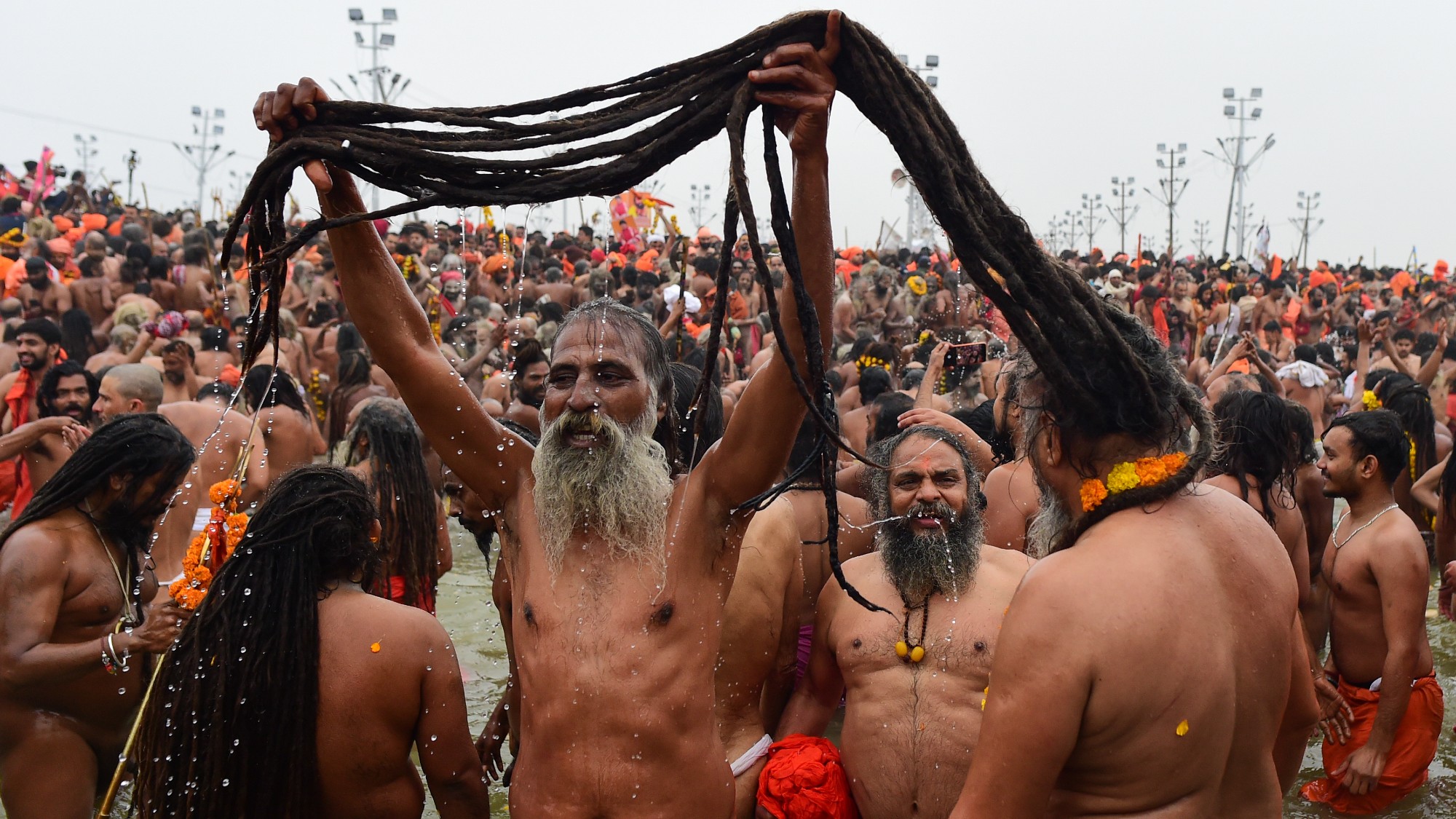
A free daily email with the biggest news stories of the day – and the best features from TheWeek.com
You are now subscribed
Your newsletter sign-up was successful
Hindu devotees from across India flocked to the northern city of Prayagraj yesterday as the world's largest religious festival began.
Over the coming 45 days, an estimated 400 million Hindus are expected to come together for Maha Kumbh Mela. The festival is held every 12 years but the "Maha" or grand Kumbh Mela takes place only every 144 years, "marking the 12th Kumbh Mela and a special celestial alignment of the sun, moon and Jupiter", said The Guardian.
'Spiritual purification'
It is one of the most sacred pilgrimages for Hindus. It has its roots in a Hindu legend that holds that the god Vishnu seized a golden pitcher containing the nectar of immortality from demons, with a few drops falling in the cities of Prayagraj, Nasik, Ujjain and Haridwar.
The Week
Escape your echo chamber. Get the facts behind the news, plus analysis from multiple perspectives.

Sign up for The Week's Free Newsletters
From our morning news briefing to a weekly Good News Newsletter, get the best of The Week delivered directly to your inbox.
From our morning news briefing to a weekly Good News Newsletter, get the best of The Week delivered directly to your inbox.
The Maha Kumbh Mela represents a "symbolic journey of self-realisation, purification and spiritual enlightenment", said Sky News. Its "ritualistic dip" in the "sacred rivers" serves as a "spiritual purification" and a "symbolic cleansing of the body and soul" which "renews the connection with the divine".
Pilgrims believe that the ritual baths can ultimately help them "achieve Hindu philosophy's ultimate goal: the release from the cycle of rebirth", said The Associated Press.
Herculean task
Many pilgrims stay for the entire festival, "observing austerity, giving alms and bathing at sunrise every day", said the AP news agency, which means the authorities face a "herculean" task to manage such a large gathering, said The Times.
State authorities in Uttar Pradesh have "put in place state-of-the-art security measures", including drones, 268 AI-powered systems, and more than 2,750 CCTV cameras, said the Times of India. There are also 700 marked boats with life-saving buoys along the riverbanks.
A free daily email with the biggest news stories of the day – and the best features from TheWeek.com
A "vast ground" has been converted into a "sprawling tent city" complete with more than 3,000 kitchens and 150,000 toilets, said AP. It spreads over 15 square miles and has housing, roads, electricity and water, communication towers and 11 hospitals.
Hindu nationalism
In the past, India's leaders have "capitalised" on the festival to "strengthen their relationship with the country's Hindus", who make up nearly 80% of the more than 1.4 billion people.
Under Prime Minister Narendra Modi, the festival has "become an integral part" of his "advocacy of Hindu nationalism" as, for him, Indian civilisation is "inseparable from Hinduism".
This is the first Maha Kumbh Mela to be held under his party's rule after it changed the town's earlier Muslim name of Allahabad to the Hindu Prayagraj in 2018. So a "successful" Maha Kumbh is expected to "burnish" his project of "reclaiming India's cultural symbols" for his "Hindu base" after he "suffered a humiliating setback" at last year's election, losing his party's parliamentary majority.
But for the pilgrims flocking to the festival, it remains a spiritual, rather than political, experience. This year, it is "extra special", Hindu seer Mahant Ravindra Puri told the BBC, because "the current alignment of planets and stars" is "identical to what existed at the moment of the spill", and "such perfection" is "being observed after 12 Kumbh festivals or 144 years".
-
 How the FCC’s ‘equal time’ rule works
How the FCC’s ‘equal time’ rule worksIn the Spotlight The law is at the heart of the Colbert-CBS conflict
-
 What is the endgame in the DHS shutdown?
What is the endgame in the DHS shutdown?Today’s Big Question Democrats want to rein in ICE’s immigration crackdown
-
 ‘Poor time management isn’t just an inconvenience’
‘Poor time management isn’t just an inconvenience’Instant Opinion Opinion, comment and editorials of the day
-
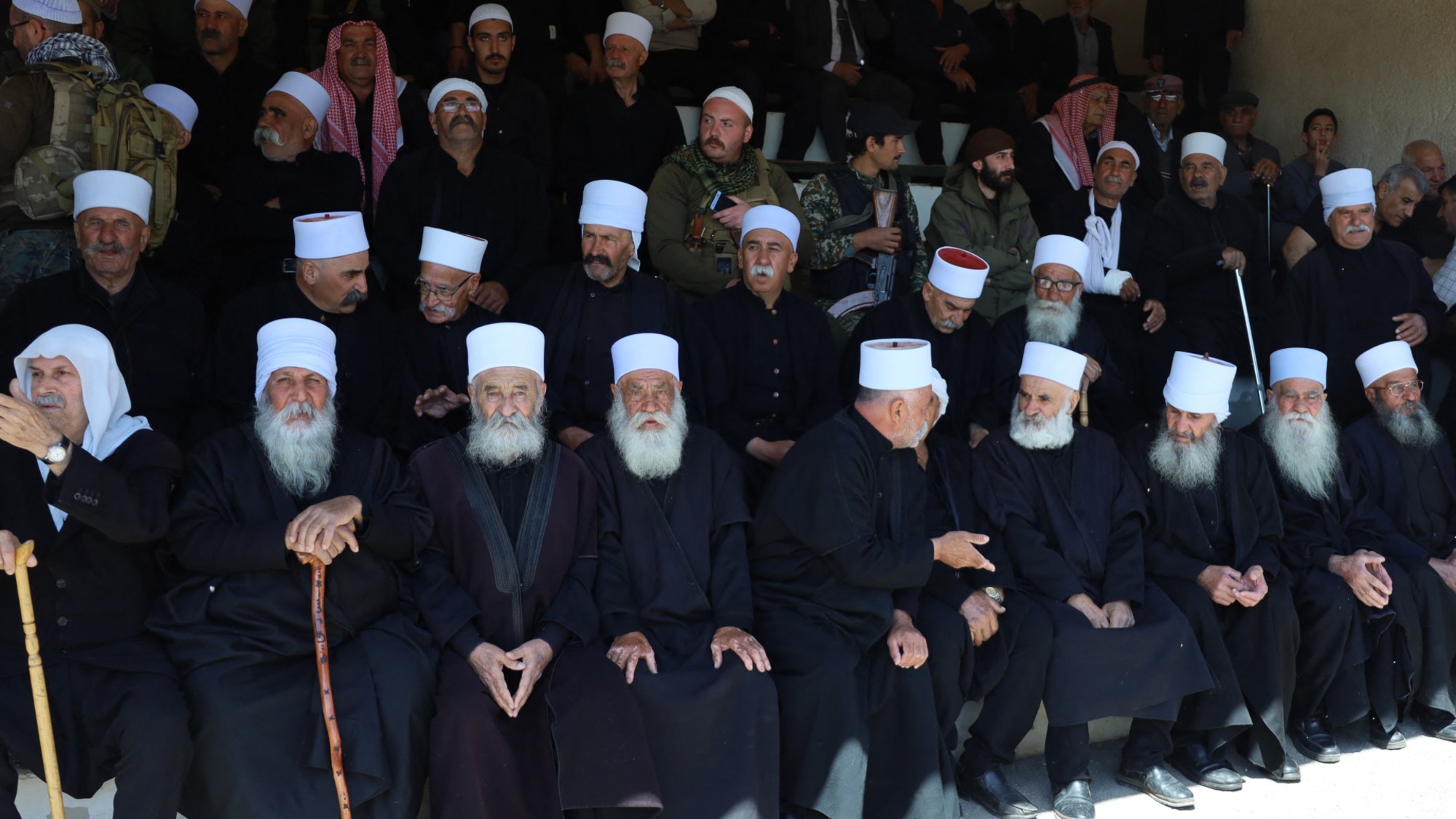 Syria's Druze sect: caught in the middle of Israeli tensions
Syria's Druze sect: caught in the middle of Israeli tensionsThe Explainer Israel has used attacks on religious minority by forces loyal to Syria's new government to justify strikes across the border
-
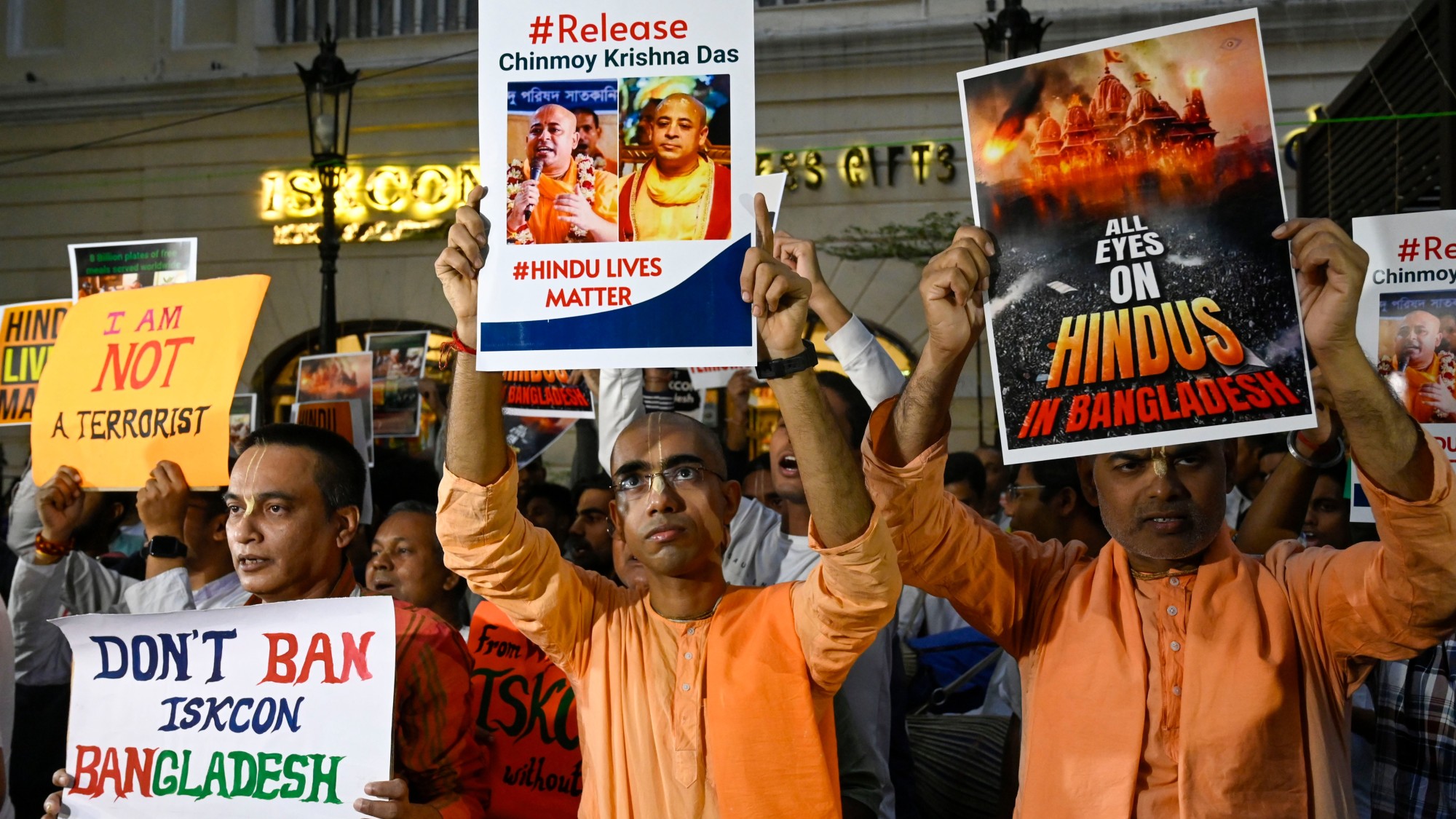 Why India is concerned at Bangladesh's 'Hinduphobia'
Why India is concerned at Bangladesh's 'Hinduphobia'The Explainer Arrest of monk Chinmoy Krishna Das stokes safety concerns for Hindu minority in Bangladesh
-
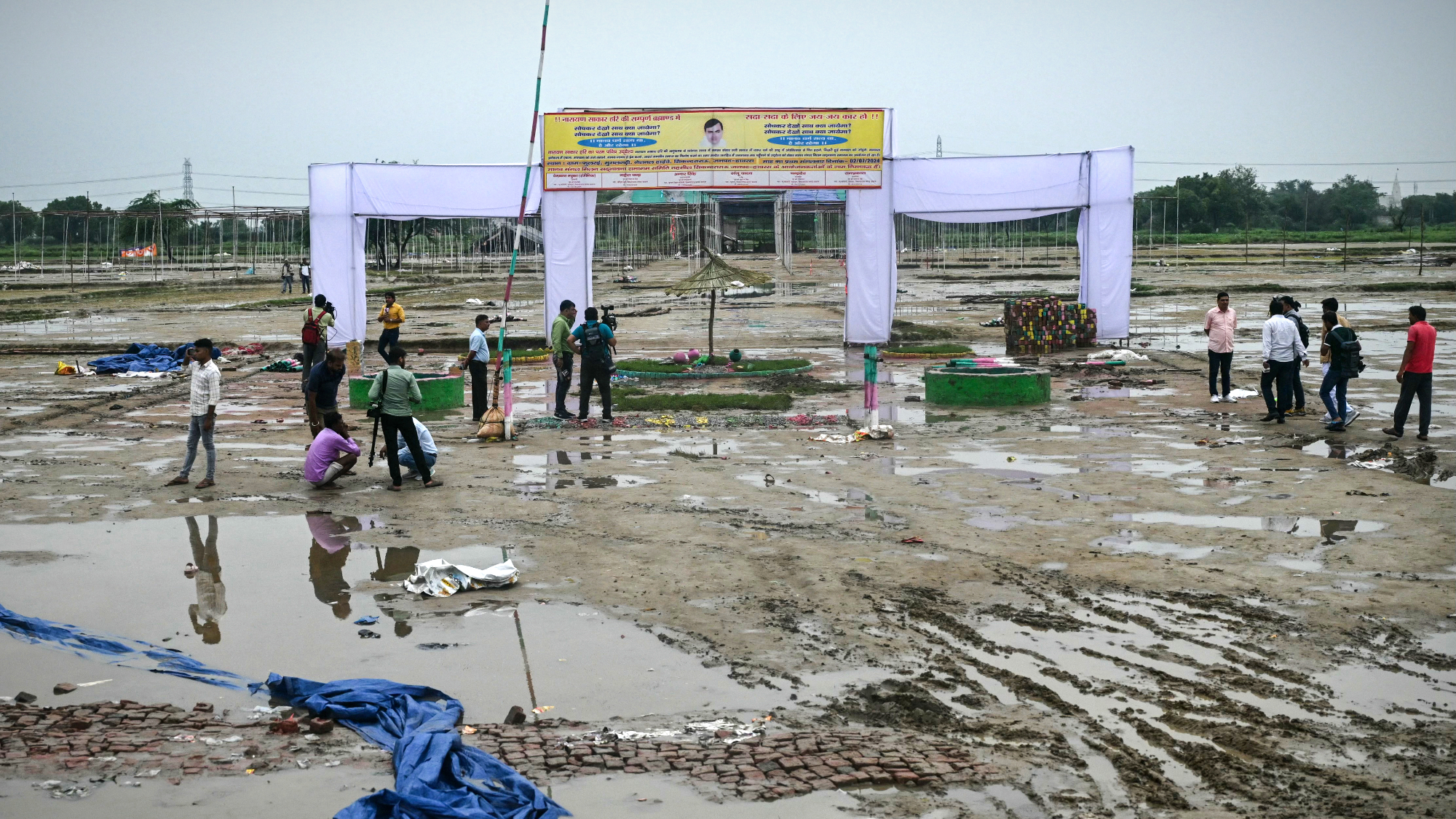 Stampede kills at least 121 at India religious event
Stampede kills at least 121 at India religious eventSpeed Read The cause seemed to be a "combination of sweltering heat and religious fervor"
-
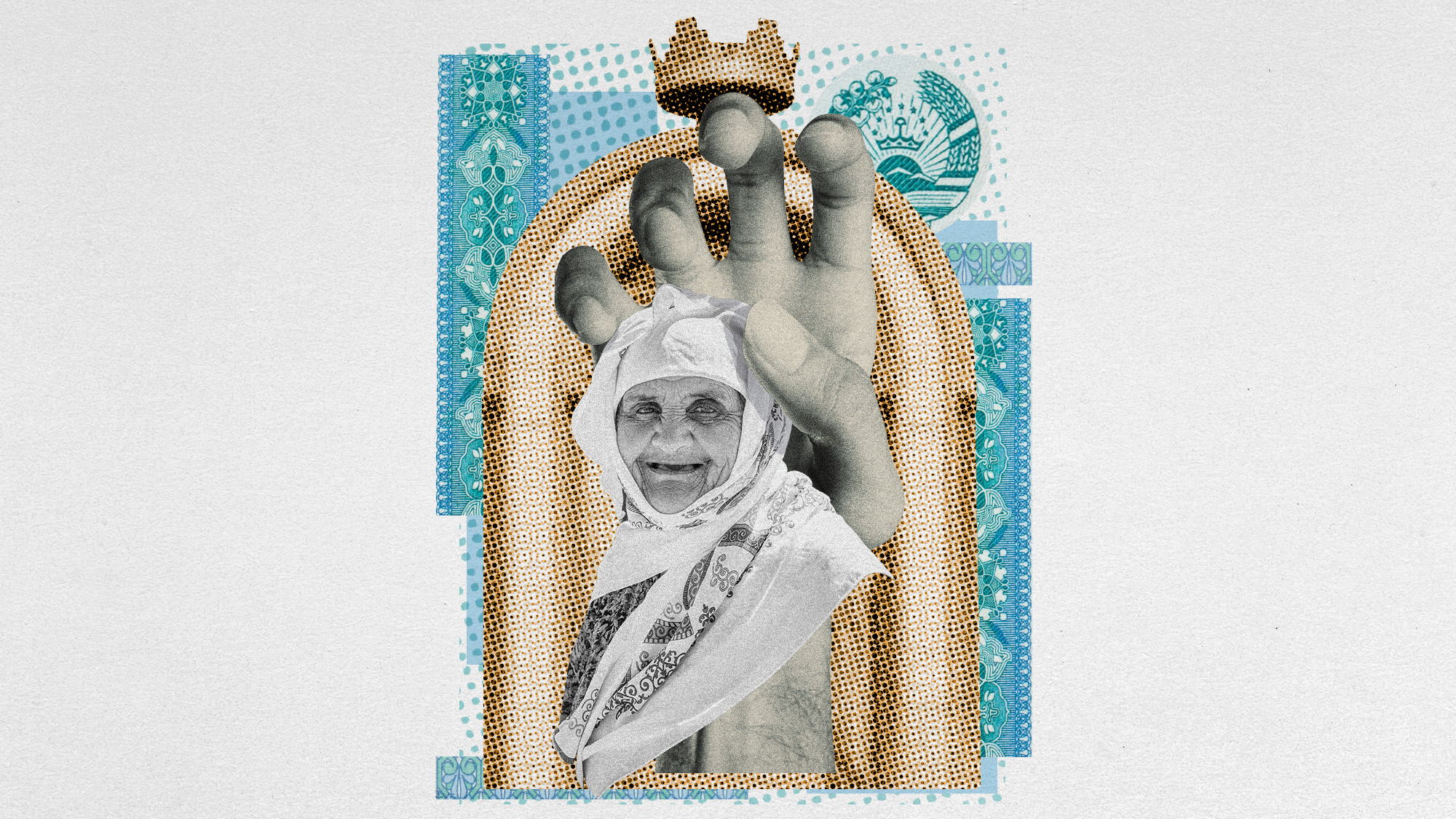 The 95% Muslim country that has banned the hijab
The 95% Muslim country that has banned the hijabUnder The Radar Outlawing the headscarf is the latest chapter in Tajikistan's clampdown on Islamic culture
-
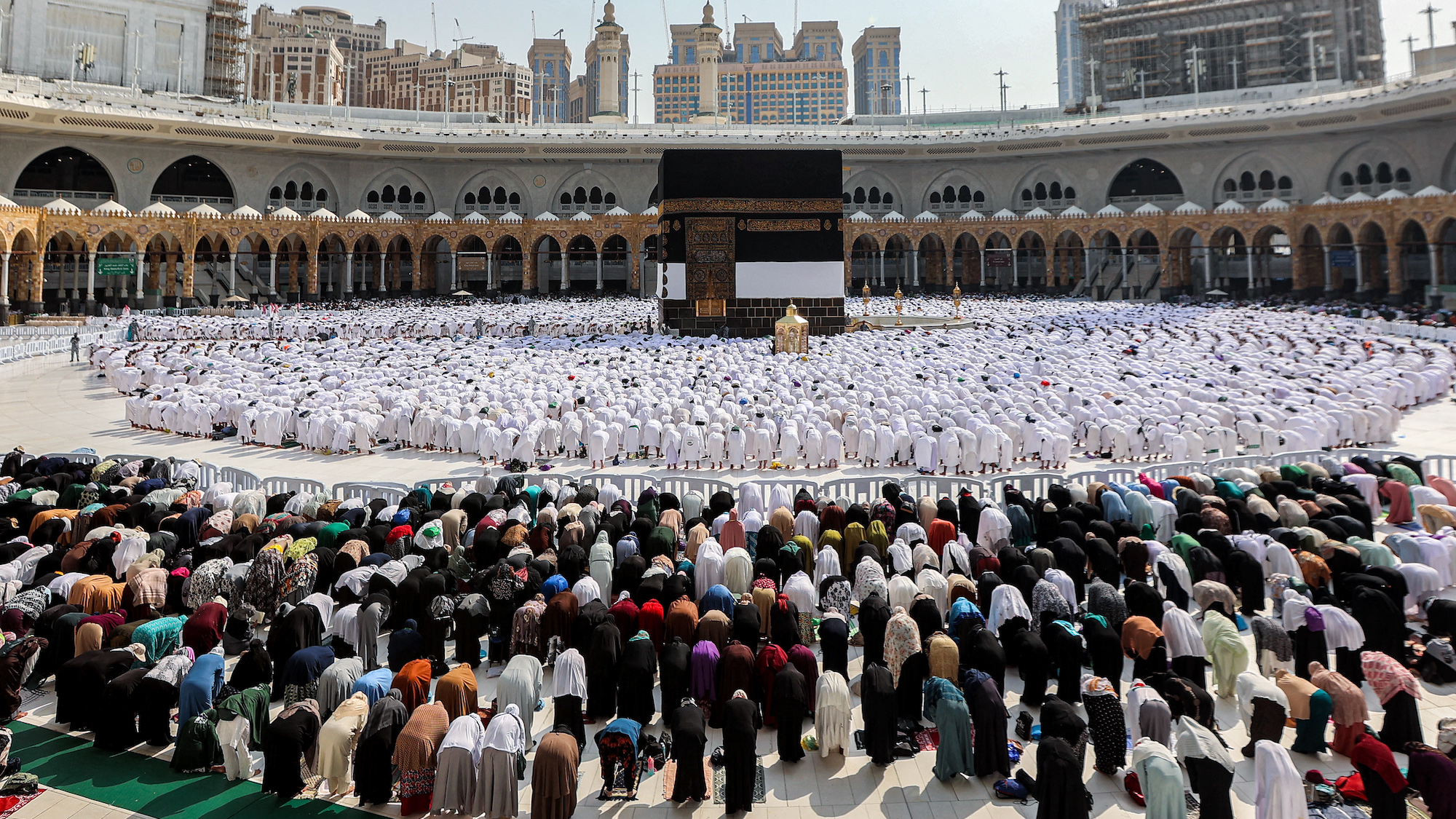 The unauthorised pilgrims sneaking into Mecca
The unauthorised pilgrims sneaking into MeccaIn the Spotlight Saudi authorities are warning of heavy fines for those caught travelling to the holy city this month without a permit
-
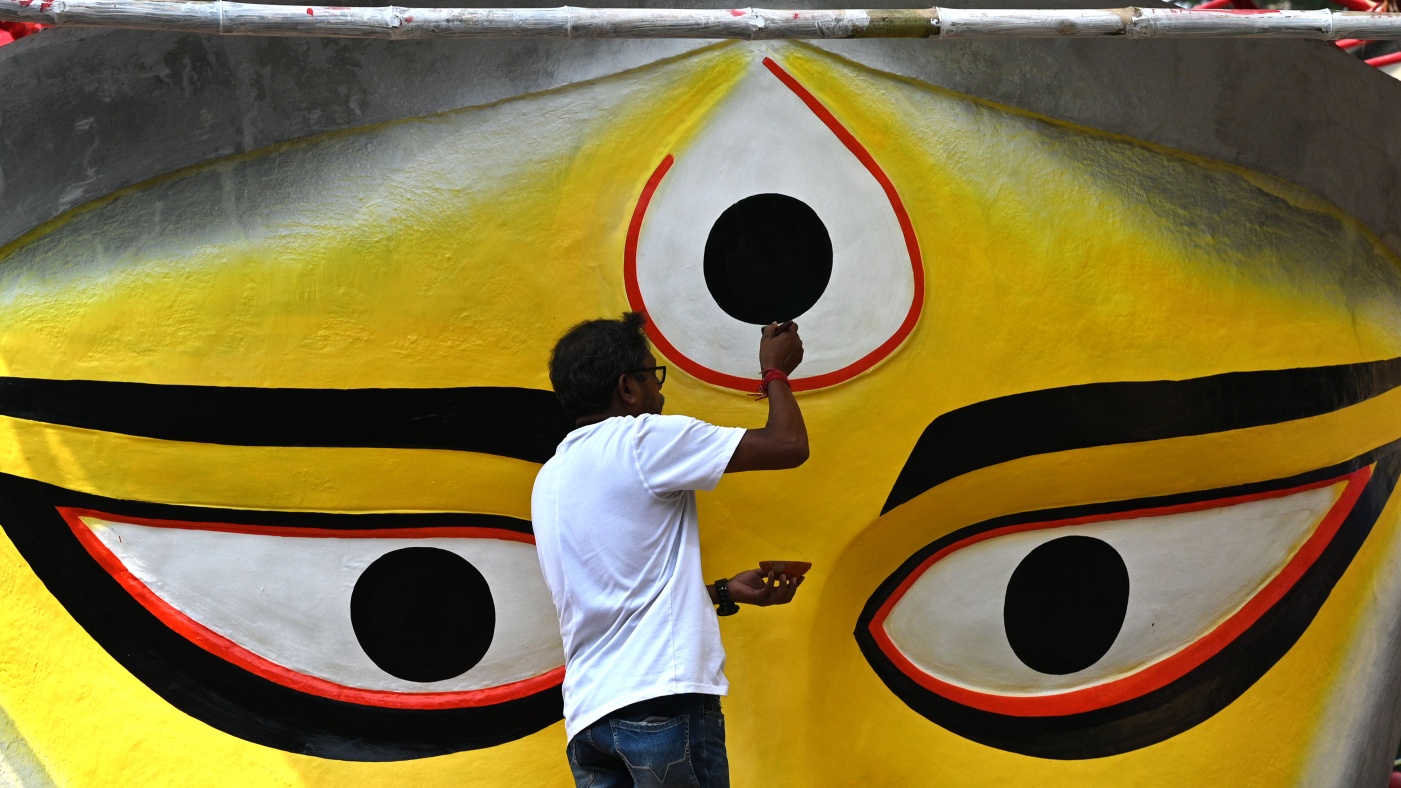 Durga Puja: majestic pandals centre of celebrations in India
Durga Puja: majestic pandals centre of celebrations in IndiaIn Pictures Hindu festival dates back to the 1500s and symbolises 'the nation's struggle for freedom'
-
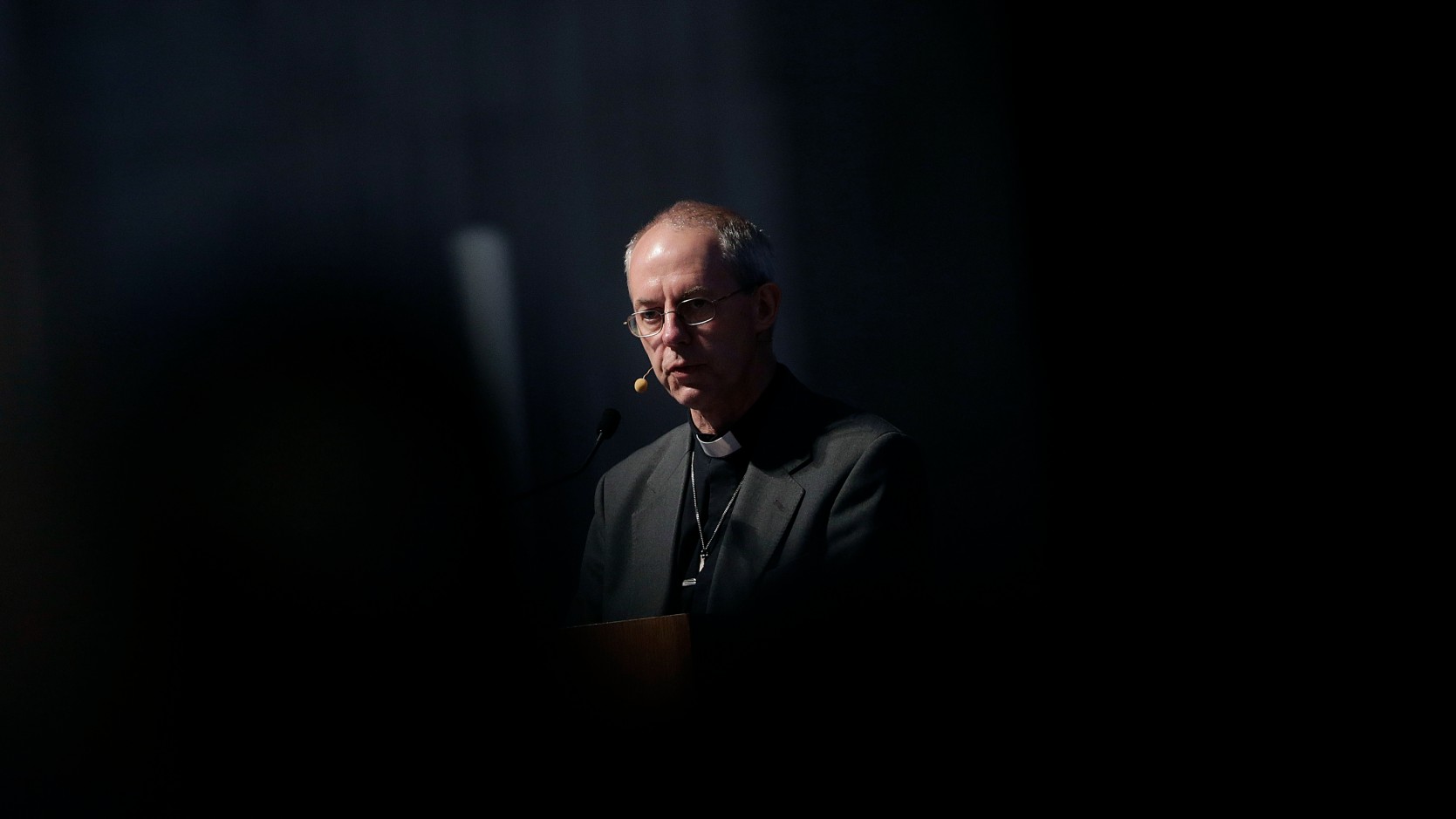 What does the rise in non-Christians mean for the Church of England?
What does the rise in non-Christians mean for the Church of England?Today's Big Question Latest census reveals England and Wales now minority Christian countries for first time
-
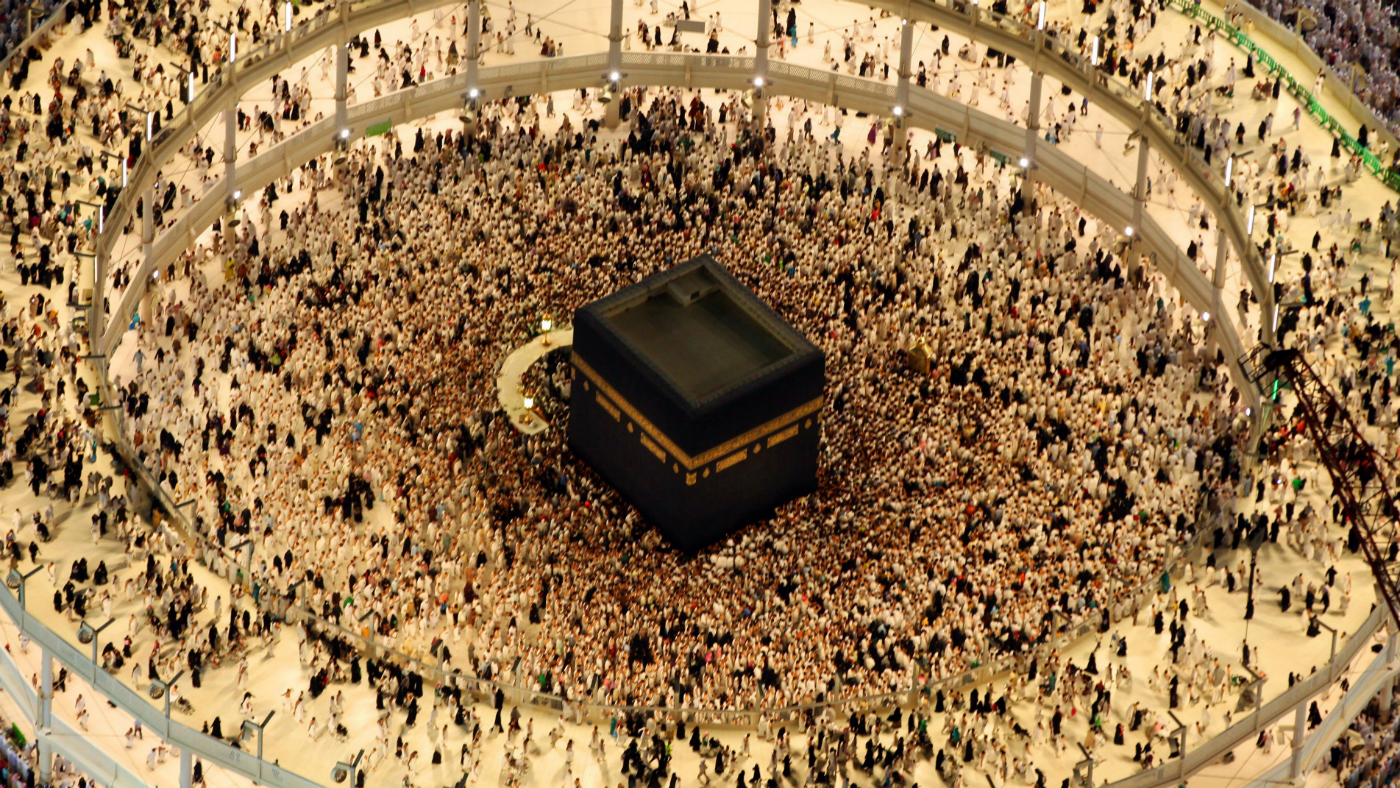 52 ideas that changed the world - 51. Islam
52 ideas that changed the world - 51. IslamIn Depth Followers of the religion make up a quarter of the global population